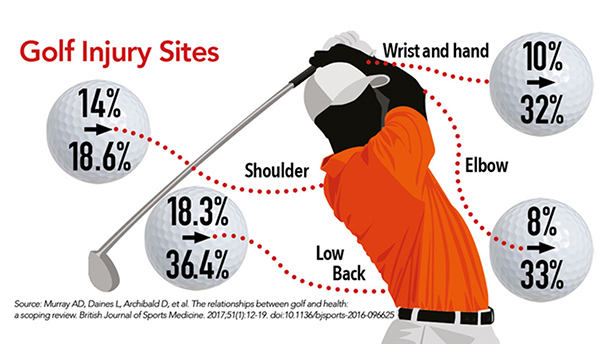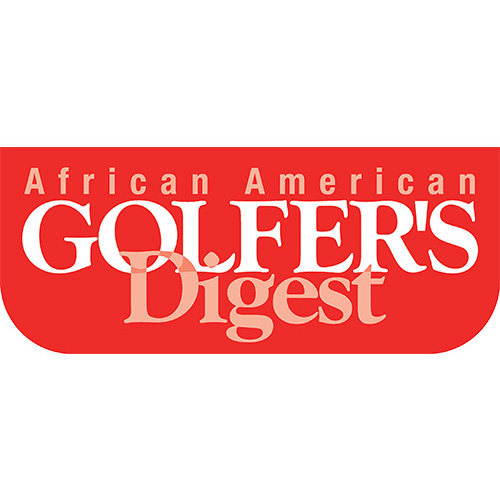Playing golf is a pleasurable and leisurely activity, but it’s not without its physical toll. The repetitive and forceful nature of a golf swing can lead to various musculoskeletal injuries, particularly affecting the back, shoulders, elbows, and wrists. Let’s take a look into the most common golf injuries, and their causes, and explore effective treatment strategies for maintaining optimal health on the golf course.
Golf injuries often result from a combination of factors, including repetitive actions, lack of warm-up or stretching, and incorrect swing techniques. The forceful rotation and impact of swinging a golf club, coupled with age-related factors, contribute to a significant number of injuries among recreational golfers, especially those over 40.
Most Common Types of Golfer’s Injuries:
A. Back Pain:
- Muscle strain or ligament sprain: The one-sided, forceful rotational action of a golf swing can lead to stretched muscles and ligaments, causing pain, inflammation, and spasms.
- Disc injuries: Damage to spinal discs, such as degeneration, herniation, or rupture, can be exacerbated by the repetitive motion of a golf swing.
B. Shoulder Pain:
- Subacromial impingement: Inflammation and impingement of rotator cuff tendons due to the rotational movement of the golf swing.
- AC joint pain: Injury to the joint at the top of the shoulder.
- Rotator cuff tears: Repetitive motion can stretch or damage the muscles and tendons surrounding the shoulder joint.
C. Elbow Tendonitis:
- Golfers Elbow: Pain on the inside of the elbow joint, leading to weakness and stiffness if left untreated.
- Tennis Elbow: Inflammation of the tendon on the outside of the elbow, a common condition in golfers.
D. Wrist Injuries:
- Sprain: Over-bending or over-extending the wrist at impact can result in stretched or torn ligaments, causing pain, swelling, and instability.
- Tendonitis: Swelling and inflammation of wrist tendons due to overuse.
- Carpal tunnel syndrome: Nerve compression in the wrist, leading to numbness and weakness in the hand and fingers.
Treatment of Golf Injuries
Most golf injuries can be effectively treated with a combination of rest, physiotherapy, and a focus on improving form to prevent re-injury. Early diagnosis is crucial for ensuring a minimally invasive and effective treatment plan. Capital Orthopaedics offers a team of sports medicine professionals, including orthopaedic surgeons, radiologists, and physiotherapists, with a specialization in diagnosing and treating sports-related injuries promptly.
Playing golf can be both enjoyable and physically demanding. Understanding the common injuries associated with the sport, their causes, and the importance of early diagnosis and treatment is essential for maintaining a healthy and injury-free golfing experience. By incorporating proper warm-up routines, addressing incorrect swing techniques, and seeking timely medical attention from experts like Capital Orthopaedics, golf enthusiasts can enhance their overall well-being and longevity on the fairway. Remember, always consult with your physician before undertaking any treatment for your injury.


